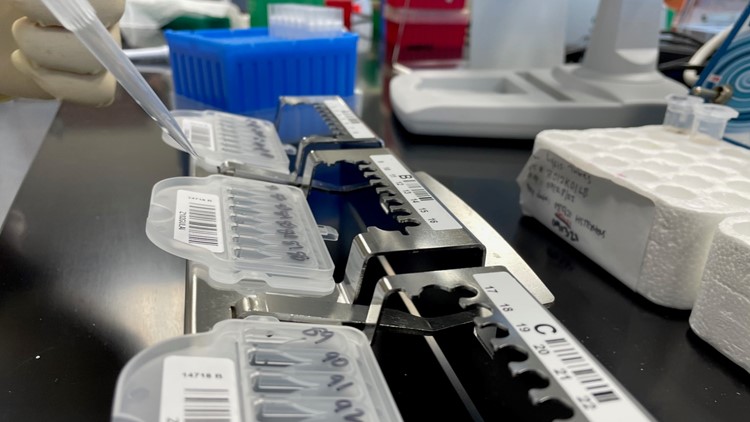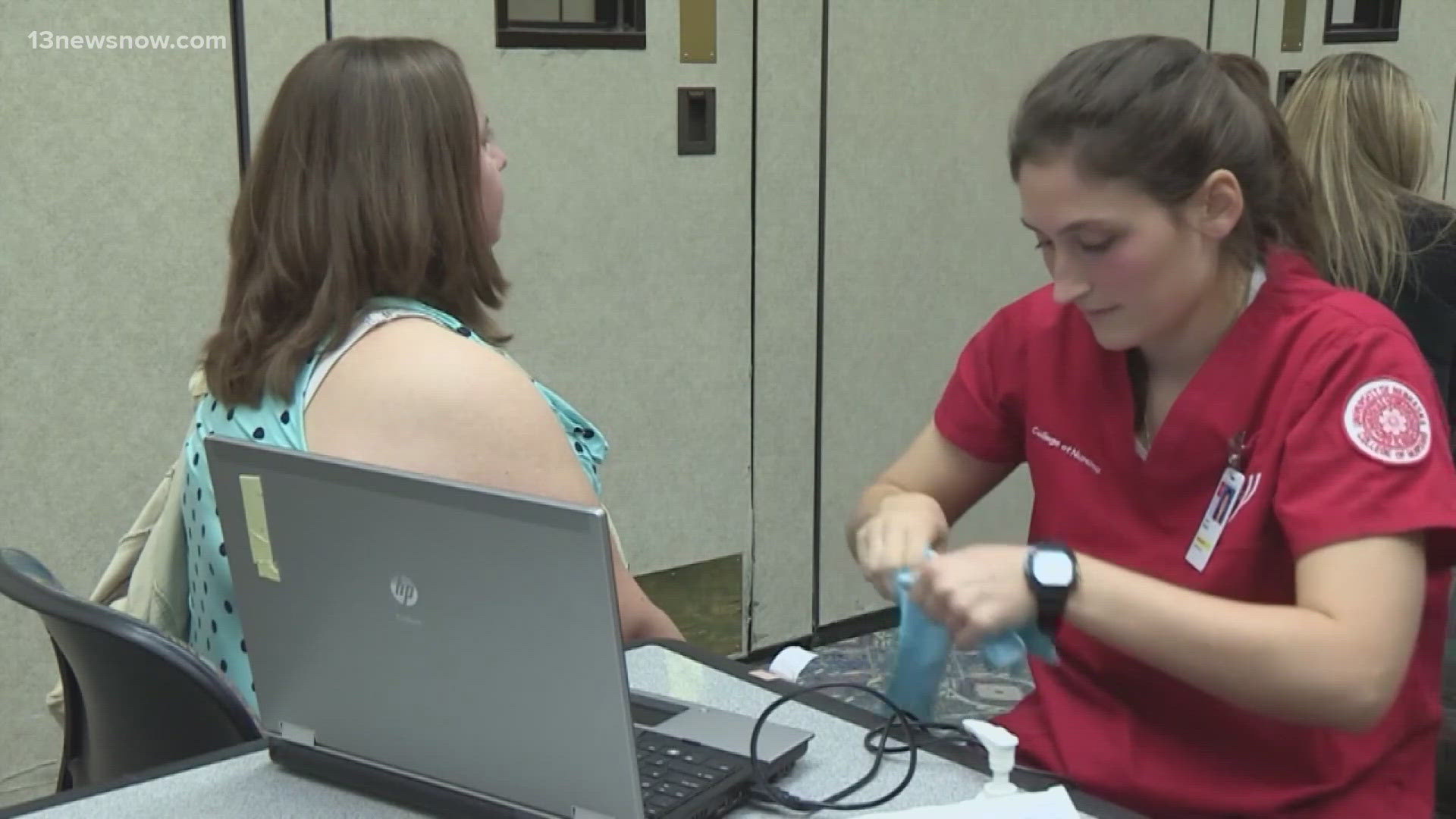VIRGINIA BEACH, Va. — Kyle Curtis is the first to admit, sometimes his job doesn't sound the most glamorous from an outside perspective.
“Sometimes I’ll jump right to that and say 'I’m a poop scientist, a poop microbiologist,'" Curtis laughed.
But as an environmental scientist for the Hampton Roads Sanitation District, his work is always important. And lately, it's especially helpful in getting past the COVID-19 pandemic.
“Whether you’re symptomatic or not, you’ll shed the virus," Curtis said.
Within the next several weeks, the HRSD says it'll be able to test for the emerging Omicron variant within the wastewater of southeastern Virginia.
Testing for trace levels of COVID-19 within the area's sewage is research that HRSD has been conducting since the beginning of the pandemic and that their testing allows them to also detect the prevalence of particular variants within a community as well.
Curtis says it's complementary to standard PCR testing through the Department of Health, in that the information helps fill in gaps left through standard case reporting.
“You can get a little bit of an early indication from wastewater data about what you’re going to see in a week or so from clinical data," Curtis said.
“When we talk about trends, we can say that if we see an increase in the concentration of viral fractures, we can say there are more infections in this region.”
Curtis says the Sanitation District has not yet tested for the Omicron variant in local wastewater, but that it has developed the testing models needed to do so.
“If you want to be able to say, 'This is when we first saw it.' It’s getting that test up and running, getting some non-detects, and then seeing it. If you see it at the first one or two plants, who knows how long it's been here," Curtis said.
According to the Virginia Department of Health, the VDH applied for CDC funding to support the testing of COVID in wastewater.



